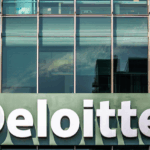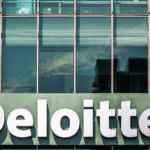
Deloitte has stated that the government’s quest to achieve the projected revenue for 2026 will partly depend on its rigorous implementation of the identified tax reforms, strengthening of tax administration, maintaining macroeconomic stability, and decreasing the overall cost of doing business in Ghana.
According to the professional services, the continuous monitoring and adaptive policy responses will be essential as some risks persist with major tax reforms around Value Added Tax (VAT) set to take effect from 2026.
“The government’s reported revenue underperformance for 2025 in PAYE, corporate income tax, VAT, excise duties, growth and sustainability levy, and import duties requires further diagnosis to understand root causes and to recommend measures to reverse this trend. In the meantime, we recommend that the government strengthen audit and enforcement mechanisms to seal any loopholes that are being exploited”, it disclosed in its analysis of the 2026 National Budget.

“Volatile global oil and gas prices resulting from recent geopolitical tensions, together with some local factors including reduced production, have negatively impacted oil and gas revenue receipts to the government. This phenomenon presents a risk in the short and medium term to Ghana’s overall budget performance. Going forward, the government should consider deploying incentives (tax or otherwise) to boost production and private sector investment in the oil and gas sector”, it stressed.
Alternatively, Deloitte urged the government to explore hedging strategies to mitigate the impact of volatile international oil prices and ultimately consider accelerating the development of non-oil sectors to augment the revenue contribution from the oil sector.
Reform of VAT System
Deloitte also stated that the government’s reform of the current VAT system is a sound policy and a good response to concerns raised by private sector businesses regarding the pain points in the VAT administration during the National Economic Forum (NEF) and other fora.

However, its success will depend on broadening the tax base, improving administration and ease of compliance, and maintaining strong enforcement. These actions, Deloitte indicated, will help safeguard revenue, promote fairness, and support Ghana’s economic transformation agenda.
“Ghana’s Modified Taxation Scheme, first introduced in 2015 and further amended in 2022, represents a significant effort to refine tax rates and compliance measures for SMEs, addressing the longstanding challenge of widening the tax net to include the informal sector. While these legislative steps and the recent relaunch by the GRA are commendable, the scheme’s impact has been constrained by persistent informality and limited taxpayer awareness”.

To build on this progress, Deloitte recommended that the GRA intensify taxpayer education, streamline digital tax platforms, and maintain regular consultations with SME stakeholders, ensuring the policy is both effective and widely adopted across the sector.
In 2026, total revenue and grants are projected at GH¢268.1 billion, up from the 2025 budget of GH¢229.9 billion. The projected revenue is underpinned by improved revenue measures, which are expected to increase equivalent to 0.8% of Gross Domestic Product.
Tax revenue is projected at GH¢223.9 billion for 2026 and constitutes about 83.5% of the projected total revenue and grants. Non-Tax Revenue is estimated at GH¢26.7 billion, representing about 10% of domestic revenue.
- President Commissions 36.5 Million Dollars Hospital In The Tain District
- You Will Not Go Free For Killing An Hard Working MP – Akufo-Addo To MP’s Killer
- I Will Lead You To Victory – Ato Forson Assures NDC Supporters
Visit Our Social Media for More




